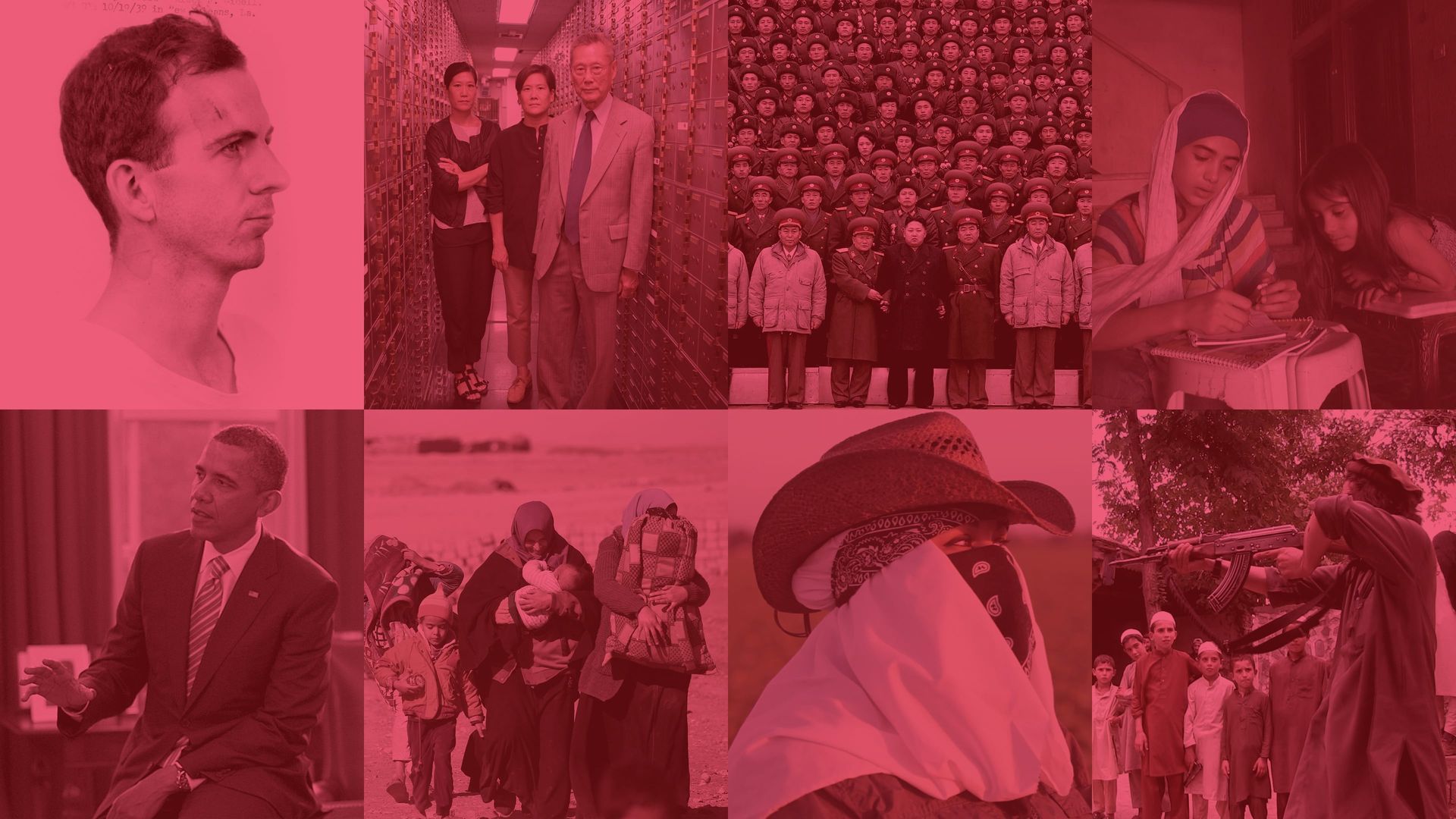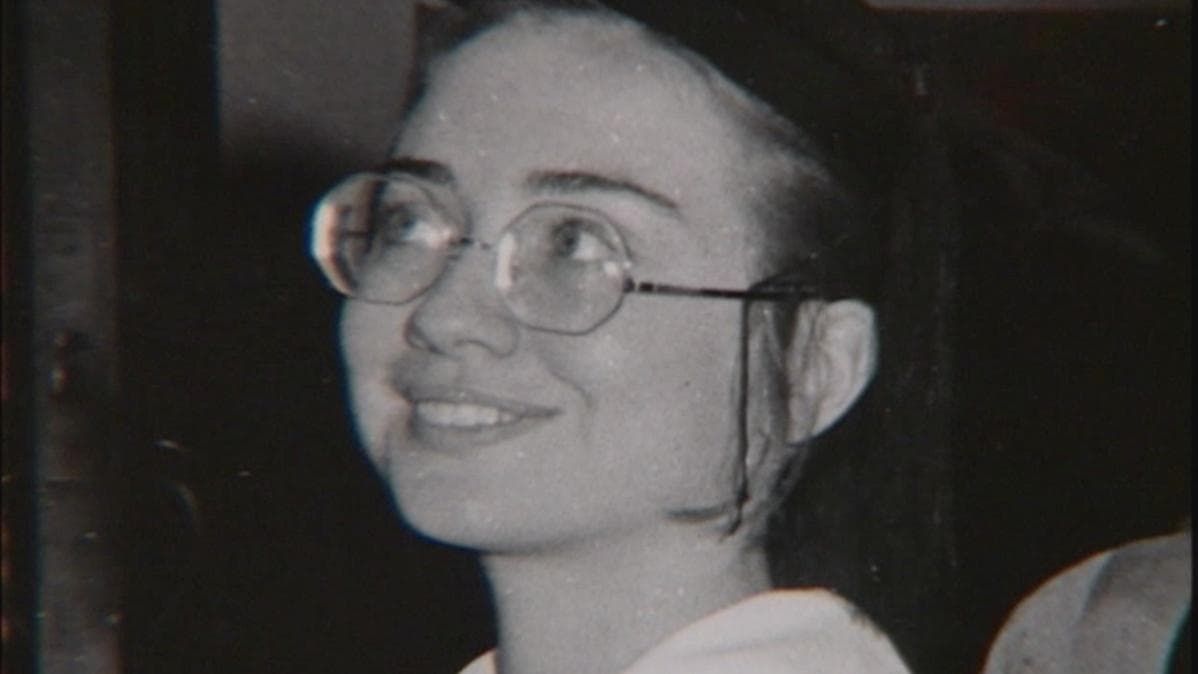

Frontline
Season 13
TV-MA
Since it began in 1983, Frontline has been airing public-affairs documentaries that explore a wide scope of the complex human experience. Frontline's goal is to extend the impact of the documentary beyond its initial broadcast by serving as a catalyst for change.
Where to Watch Season 13
19 Episodes
- School ColorsE1
School ColorsIntegration. It was called the greatest social experiment of our generation. But 40 years after Brown v. Bd of Ed, many of our schools are still sharply segregated along color lines. America's changing demographics have tested the limits of our racial and ethnic tolerance, leaving many of us to ask whether the nation's diversity will enrich us or tear us apart. Follows one year in the lives of Berkeley CA students and principal. - Is This Any Way to Run a Government?E2
Is This Any Way to Run a Government?As the Clinton administration claims significant progress in its commitment to streamline the federal government, Frontline investigates the one agency that is arguably the most resistant to reform--the Department of Agriculture. Focusing on the excesses, abuse, and mismanagement in the USDA's massive crop subsidy programs, Frontline examines how Congressional power has stymied a generation of agriculture secretaries, Republicans and Democrats alike, who have tired to reform the agency's bloated and outdated bureaucracy. - Hot MoneyE3
Hot MoneyFrontline investigates a financial revolution--the movement of most of the world's money to huge off-shore banking centers, many located on the tiny islands of the Caribbean. The program examines how the secrecy and lax regulation of these off-shore centers play a critical role in facilitating international crime--money laundering, insurance fraud, and tax evasion. - How to Steal $500 MillionE4
How to Steal $500 MillionMichael 'Mickey' Monus, the flamboyant co-founder and president of Phar-Mor, awaits criminal trial to decide if he was responsible for one of the largest corporate frauds in U.S. history. FRONTLINE tells the story of Phar-Mor's rapid rise and stunning fall and reveals how, for five years, the company's top executives were able to hide a $500 million shortfall from the company's auditors. - Hillary's Class
 E5
E5Hillary's ClassIn 1969, Hillary Rodham Clinton and four hundred other smart, privileged, young women graduated from Wellesley College into a world that for the first time was opening its doors to women. But what about her classmates who left college believing they could do anything? In 1969, Hillary Rodham Clinton and four hundred other smart, privileged, young women graduated from Wellesley College into a world that for the first time was opening its doors to women. - The Nicotine WarE6
The Nicotine WarFRONTLINE tells the story of Food and Drug Administration chief David Kessler's bold attempt to regulate tobacco--an industry which has defied regulation for more than thirty years. The program details Kessler's efforts to prove that manufacturers have been manipulating nicotine in cigarettes to keep smokers hooked and examines how this mission may be in jeopardy because of the Republican landslide in Congress. - Does TV Kill?E7
Does TV Kill?Before the average American child leaves elementary school, researchers estimate that he or she will have witnessed more than eight thousand murders on television. Has this steady diet of imaginary violence made America the world leader in real crime and violence? FRONTLINE correspondent Al Austin journeys through what is known about television violence and how it affects our lives. The program reveals some unexpected conclusions about the impact TV has on the way we view the world. - What Happened to Bill Clinton?E8
What Happened to Bill Clinton?FRONTLINE presents a thoughtful and challenging examination of the Clinton presidency at midterm. Moving beyond the conventional analysis of Clinton's troubles and the Republican electoral victory, the program lays out a mosaic of perspectives and insights on the man and his performance from some of the nation's savviest political thinkers. - The Godfather of CocaineE9
The Godfather of CocaineFRONTLINE travels to Colombia for an investigative biography of the rise and fall of the richest and most violent cocaine drug lord, Pablo Escobar. Before Colombian police and the U.S. Drug Enforcement Agency hunted him down and killed him, Escobar built an estimated $4 billion fortune through international cocaine smuggling alliances and the violent repression of his enemies. - The Begging GameE10
The Begging GameEach day, thousands of panhandlers work the streets and subways of cities all across America. Are the hard luck stories they tell believable? What are their lives really like off the street? Correspondent Deborah Amos explores the hidden world of panhandlers in New York City, gaining access to the intimate details of the their lives, investigating the real story of why they beg, and examining the impact of New York Mayor Rudolph Guiliani’s crackdown on panhandlers. - Rush Limbaugh's AmericaE11
Rush Limbaugh's AmericaFRONTLINE explores the phenomenon of conservative talk show host Rush Limbaugh. Three hours each day, five days a week, Limbaugh is heard on more than 600 radio stations, in addition to hosting a daily half-hour television program. How much political clout does Limbaugh have? Tracing his rise to fame and fortune, the program also takes an in-depth look at Limbaugh's audience and asks what impact he had on the Republican congressional landslide. - Divided Memories (1)E12
Divided Memories (1)Today, a raging debate over the validity of repressed memory about sexual abuse divides the therapeutic community, the women's movement, and thousands of accusers and accused. In 'Divided Memories,' producer Ofra Bikel examines the complicated issue of repressed memory, looking at what we know about memory and the way it works. Tracing the repression debate back to Sigmund Freud, Part 1 examines the different kinds of therapies used to help patients remember, including age-regression therapy, past-life therapy, and hypnosis. - Divided Memories (2)E13
Divided Memories (2)Part 2 looks at the effects that remembered abuse has had on the families involved and explores how we distinguish real memories from those which are not true. 'We know that sexual abuse is a real problem,' says Bikel. 'But when the memories are not real, what makes the 'victim' so ready to believe they are? What cultural forces have made the explanation of sexual abuse so easy to accept?' - The HomecomingE14
The HomecomingIn February 1974, Nobel prize-winning author, Alexander Solzhenitsyn was arrested, stripped of his Soviet citizenship, and expelled from his country. Nearly twenty years after exiling himself in Vermont, FRONTLINE accompanies Solzhenitsyn on his emotional return to his homeland, journeying by train across Russia into his past even as his thoughts turn toward the current troubles plaguing Russia. Followed--and often frustrated by--leagues of journalists, photographers, and camera crews, Solzhenitsyn urges the factory workers, businessmen, and ordinary villagers he meets along the way to have courage. - When the Bough BreaksE15
When the Bough BreaksFRONTLINE explores the bond between parents and children and the profound implications for children’s behavior later in life if that attachment is hampered. These characteristics may include overly aggressive behavior, serious learning problems, and delinquency. The program uses surveillance cameras in the homes of three middle-class families who are struggling with troubled children between the ages of sixteen months and three years and observes the behavior and interactions of the children and their parents. ‘Even before they can speak, children give out signals,’ says producer Neil Docherty. ‘What are those signals? And what happens when they are misread or missed entirely?’ - The Vanishing FatherE16
The Vanishing FatherIn less than two generations, a seismic shift has occurred in the makeup of the American family. Today,fatherlessness has become the norm for about forty percent of American children and, some experts believe, contributes to some of our most urgent social problems. FRONTLINE explores this dramatic change in the American family and the startling findings of sociologists that, despite economic status, children from single parent homes are twice as likely to drop out of high school, to become teen-age mothers, and to spend time in jail. - The Confessions of Rosa LeeE17
The Confessions of Rosa LeeThe Washington Post ran a week-long series of front-page articles about one Washington, D.C., resident and her family. Reporting on the interrelationships of poverty, racism, crime, illiteracy, and drug use and their persistence over generations, reporter Leon Dash spent four years getting to know RosaLee Cunningham, a thief, former prostitute and drug addict, and the mother of eight children. Dash observed first-hand the poverty, drug use, and crime now cycling through a third generation of RosaLee's family. FRONTLINE examines the reaction and controversy Dash's powerful report had among policymakers and amidst the African-American community and reveals what happens when the reporter-as-objective-observer erases the boundary between himself and his subject. - Welcome to Happy ValleyE18
Welcome to Happy ValleyProzac is the most prescribed antidepressant drug in America. FRONTLINE travels to the prozac capital of the world, Wenatchee, Washington, and talks to the ‘Pied Piper of Prozac,’ Dr. Jim Goodwin, a clinical psychologist who says Prozac is ‘probably less toxic than salt’ and has had it prescribed for all his seven hundred patients. Psychiatrist Peter Breggin and members of the Prozac Survivors Support Group, however, question the use of the drug.

